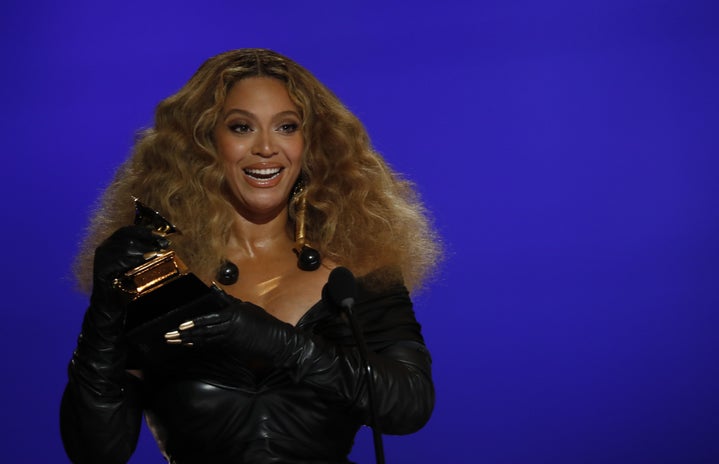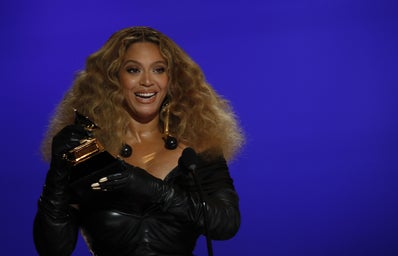Music has always been an important part of Black culture. Traditions across the African continent vary, but music remains a reflection of African values, spiritualism and emotions. In colonial North America, enslaved people used music as a form of escapism. While colonizers tried to subdue the identities of the African people they captured, Black people used their love of music to revolt. Not only did they use it to express themselves, but they used folk songs as a form of secret communication.
The influence of Black music spreads beyond the African diaspora. While it’s evident in predominantly Black genres, such as hip hop, R&B, reggaeton, dancehall, soul and jazz, it was Black creatives that gave us rock and roll, pop and country. Even genres such as K-pop wouldn’t be what they are today if it weren’t for the Black people who set the standard for modern music.
With music being the gate to so many Black creatives’ souls, it comes as no surprise that almost every genre has a Black female icon to associate it with. Black women are one of the most mistreated demographics across the globe. Misogynoir runs rampant both inside and out of the Black community. Yet, they have prospered in the world of music. The ‘Black female icon’ is a position that only a few have successfully gained. The growth of the title through the years shows Black girl magic as it has developed, spanning decades and genres. From the 19th century to the present day, here is the evolution of the Black female icon.
Ma Rainey: Active 1899-1939
Ma Rainey, known as the “Mother of the Blues,” is considered to be the woman who created the classic blues. While her career started in the American South, she pioneered the blues to appeal to both rural and urban audiences. She was one of the first female artists to unapologetically portray a wide range of the female experience. She sang about sexuality, drinking and parties. What was most noticeable about her was her voice. Her low and gravelly singing style became iconic, inspiring future imitators such as Louis Armstrong.
Ella Fitzgerald: Active 1929-1995
The birth of jazz changed music forever. Like a lot of genres birthed by Black Americans, jazz originated in the South of the United States, specifically New Orleans, but by the 1920s, it spread across the country. A few decades later, it would become a worldwide trend. One of the musicians to lead this wave was Ella Fitzgerald. In an era when white men began to take jazz as their own, Ella managed to keep the spotlight on her. Known as the “Queen of Jazz” and the “First Lady of Song,” Ella Fitzgerald renovated jazz music with her unique dictation, timing and scat singing.
Aretha Franklin: Active 1960-2017
Aretha Franklin is undoubtedly one of the most influential women in music. Her fame is unparalleled with over 100 Billboard entries, numerous honors and her status as the first female performer inducted into the Rock and Roll Hall of Fame. Echoing the development of the soul genre, Aretha Franklin started her career as a gospel singer. By the 1960s, she embarked into soul and never turned back. The power in her voice transforms hardships and pain into beautiful music. So much so that her voice was named a Michigan “natural resource.” Franklin’s hit single “Respect” displays the themes and movement that she represents. In the song, she demands the respect she rightfully deserves after constantly being dismissed.
donna summers: Active 1968-2012
Disco is a revolutionary genre. It represents a major change in American nightlife. With disco clubs constantly being associated with the thriving drug subcultures and the sexual revolution of the 1970s, disco was originally very controversial. By the ‘80s, the hype for disco began to die down. But Donna Summers’ career continued strong into the 21st century. Donna Summers was an activist who changed the face of music forever. As the “Queen of Disco,” she was influential to pop music. Songs like “Hot Stuff” defined an entire decade and shifted music history completely. Though her music was made for dancing, she would touch on topics like women’s rights. Donna Summers brought a change to music culture. She is known for being the first true “diva” of modern pop.
tina turner: 1957-present
Very few musicians are able to claim a decades-spanning career, but Tina Turner is one of them. She entered the music industry when she and her husband, Ike Turner, formed the soul-centered duo, “Ike & Tina Turner.” However, Tina’s career truly blossomed once she went solo in the 1980s. She left her R&B origins and became a defining artist in the ’80’s rock scene. She’s referred to as the “Queen of Rock and Roll” for a reason. In her prime, Tina Turner was the face of a musical revolution among Black women. The history of music has seen many turning points, and Tina Turner’s career is one of them.
janet jackson: Active 1973-present
During the first years of her career, Janet Jackson was cast under her brother’s shadow. Known initially as “Michael Jackson’s little sister,” it would be a short amount of time until she replaced that title with “The Queen of Pop.” The beginning of the 21st century saw the birth of many pop icons and Janet Jackson influenced almost every single one of them. She combined her music with dance in a way that had yet to be seen, transforming live performances into their own art form. All of the women in this article can be tied to major shifts in music, but culture would not be where it is today if it wasn’t for Janet Jackson’s talent. With the help of her brother, Prince, Whitney Houston and a few other Black musicians, she brought Black faces to the foreground of pop music.
beyoncé: Active 1997-present
Queen Bey herself. Starting off as the face of one of the biggest girl groups, Beyoncé has become a key artist in the media. Her career spans over 20 years and has made her the most honored singer by the Grammys with 28 Grammy Awards won and 79 nominations. Her stage presence and vocal powers make her arguably the most iconic musician of this era. With so many other musicians rising and falling in the past decades, nobody has dominated modern-day music the way she has. Beyoncé’s solo career boomed immediately with her debut single “Crazy in Love” and has gone nowhere but up since. Pop culture has changed a lot in the past few years, and most of the new concepts that fill it saw Beyoncé being the first to do it: surprise releases, visual albums, etc. While there are many successful Black women who have come before her, nobody encompasses the idea of the “Black female icon” the way that Beyoncé does. The music grew with her and each of her eras represents a different time of pop culture.
There is no way to know who will become the next icon of our generation, but the Black female musicians — those in this list and those not — have helped Black women take over the charts. Normani, SZA, Megan Thee Stallion and Doja Cat are only some of the names that are on everyone’s radar right now. And with the relevance of social media and “stan” culture, it doesn’t seem like these women will be going anywhere any time soon.
From hair to clothes to rhythm, Black culture’s influence on society is undeniable. Black women are a force to be reckoned with, especially in music. They are the blueprint for most pop culture, a fact that dates back decades.


